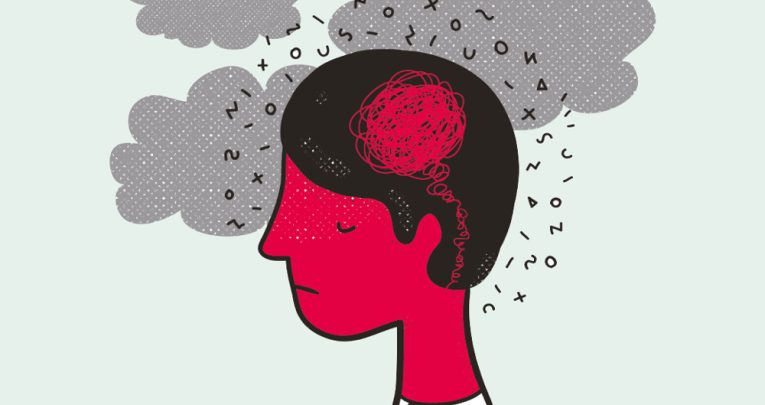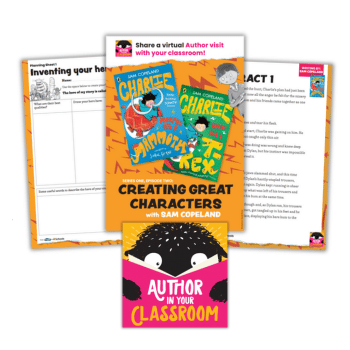Secrets of a ‘Naughty’ Kid

My teachers would never have guessed what I was going through as a child, says author Sam Copeland…

- by Sam Copeland

A few months ago, I was interviewed by a Guardian journalist about whether picture books can assist with the current crisis in children’s mental health.
I was quoted as saying the following: teachers are exhausted and overworked and they may just see naughty children acting up, while behind the scenes there’s often something really difficult going on.
To expand on this point, it seems to me that teachers are having to take on more responsibility for children’s emotional wellbeing while dealing with the increasing pressures put on themselves.
As well as working long hours in large class sizes and dealing with the strains of an overly-prescribed curriculum, they’re facing an explosion of mental health issues, including children experiencing increased anxiety.
I appreciate that as an author rather than a teacher, I’m not best qualified to suggest solutions to this problem, but I do have the benefit of living with an educational psychologist, my wife, and so hear about the struggles teachers are facing on a regular basis.
Perhaps some of this acting up by so-called ‘naughty’ children could be related to the issues outlined above. Some behaviour – restlessness, fidgeting, impulsiveness – may be easy to spot, but less obvious behaviours, such as inattentiveness or reclusiveness, could be indicative of underlying emotional needs.
Are teachers expected to be able to spot all of these things? You can only do your best. I can only imagine that the stress you’re also under likely makes that harder. Indeed, teachers’ own wellbeing and self-care must also be supported.
And as for those pesky kids who can cause chaos in the classroom, I speak from experience. I faced many serious problems as a child, such as parental divorce and slow terminal illness in my very close family, which I masked by messing about and acting up.
Teachers could never have known what was going on for me. I never spoke about it – I felt too embarrassed and like I was the only one with these problems, so I hid them behind a veil of mischief, I was always in detention, which increased the stress I felt.
My reports were littered with phrases such as ‘needs to learn to control his behaviour’ and ‘constantly messing about’. They were absolutely right though.
Looking back, I must have driven my teachers round the bend. I’m really sorry, guys. I even contacted one of my old English teachers not so long ago to apologise.
Despite the misery I heaped on him, to my great relief he accepted my apology with great grace.
Many believe that connection is key. Neuropsychiatrist Dan Siegel talks about the four S’s needed for children to be able to self-regulate: they need to feel seen, safe, soothed and secure.
Suggestions such as greeting your pupils warmly at the door and meeting emotional upset with compassion wherever possible seem like excellent ways to help children feel seen.
A strong pastoral support system, it seems to me, is also crucial. It would undoubtedly have helped me.
Children need to be aware that there are a number of adults they can talk to. Approaching grown-ups with a problem can often be nerve-wracking, so clear and easy systems for them to be able to do that also need to be in place.
Additionally, mindfulness can be a really helpful tool. It helps both children and the adults around them become more aware of emotions and their impact, as well as equipping us to deal more skilfully with how we are feeling.
I didn’t recognise it at the time, but the stress I was under as a child must have been immense. To have known that it was OK to have these feelings, and to have had a connection with somebody at school who understood, would have made a huge difference.
Looking back at that small boy with the weight of the world on his shoulders has had a profound impact on me as an adult. That’s one of the reasons my latest book, Charlie Changes into a Chicken, is close to my heart.
It began as a cathartic exercise, exploring the feelings I had as a child, but with time I realised that perhaps it could help other children – and their parents, caregivers and teachers – to start a discussion about difficult subjects in a fun, non-threatening way.
I was embarrassed about my problems when I was a child, but it’s crucial to be able to normalise the difficult emotions and experiences that children may be going through.
I attempt in my book to show a few different coping mechanisms, such as talking to friends, mindfulness and yoga. Despite the seriousness of some of the issues it covers though, I hope it’s a lighthearted, funny adventure with a world record number of poo, wee and fart references.
I only touch lightly on difficult issues, so adults can choose to expand on these topics further if the time and place is right. The essential, underlying message to children I tried to weave throughout though is this: you are not alone.
Sam Copeland’s book Charlie Changes into a Chicken (£6.99, Puffin) is out now. Follow him on Twitter at @stubbleagent.
Download resources for creating characters with Sam Copeland, to go alongside episode 2 of Author In Your Classroom podcast.










